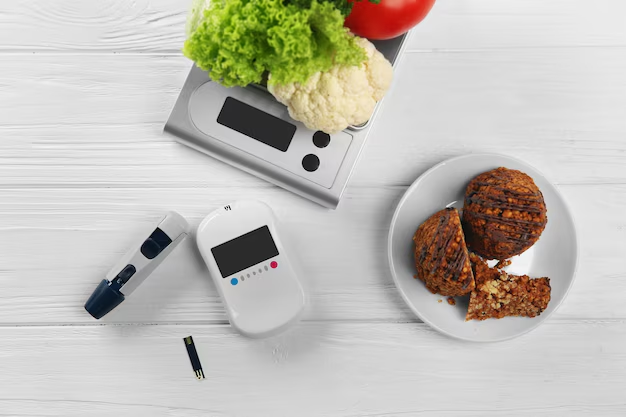Does Medicaid Cover Diabetic Supplies? Understanding Your Benefits
Managing diabetes effectively requires access to various medical supplies, from test strips to glucose monitors and insulin pumps. For many individuals, the cost of these supplies can be a significant concern. An essential question for those covered by Medicaid is: Does Medicaid cover diabetic supplies? Let’s explore how Medicaid approaches diabetic supply coverage, the factors affecting eligibility, and how you can ensure you receive the supplies you need.
🎯 The Basics of Medicaid and Its Coverage for Diabetic Supplies
Medicaid is a joint federal and state program that helps millions of Americans access healthcare services. Each state administers its own Medicaid program, resulting in variations in coverage policies. When it comes to diabetic supplies, understanding these nuances is crucial.
What Diabetic Supplies Are Typically Covered?
In general, Medicaid covers many essential diabetic supplies, including:
- Blood glucose meters and monitors
- Test strips and lancets
- Insulin and insulin syringes
- Continuous glucose monitors
- Insulin pumps and supplies for insulin pumps
The degree of coverage can differ based on state policies, and pre-authorization may be required for some supplies or equipment.
State-Specific Variations
Coverage of diabetic supplies under Medicaid can significantly differ from one state to another. Some states offer comprehensive coverage for all necessary diabetic supplies, while others may impose restrictions. These discrepancies are due to Medicaid’s state administration and the autonomy states have in determining their coverage policies.
Navigating State Regulations
To understand what your state covers, consider:
- Consulting your state’s Medicaid website for specific information.
- Contacting your local Medicaid office for personalized guidance.
- Discussing with healthcare providers familiar with Medicaid’s policies in your region.
🔍 Eligibility and Access to Diabetic Supplies
Who Qualifies for Medicaid?
Eligibility for Medicaid usually depends on income, household size, disability status, and other factors. Individuals with diabetes can qualify for Medicaid based on:
- Income level: Medicaid primarily assists low-income individuals and families.
- Disability status: Diabetes may qualify as a disabling condition, facilitating access to Medicaid.
- Enrollment in other federal assistance programs: Some participants automatically qualify for Medicaid.
How to Access Diabetic Supplies Through Medicaid
To access diabetic supplies, you may need to:
- Verify Medicaid enrollment: Ensure active Medicaid coverage and understand the specific benefits available to you.
- Get a prescription: Most diabetic supplies require a prescription from a healthcare provider.
- Use Medicaid-approved suppliers: Purchase supplies from vendors that accept Medicaid, ensuring your purchases are covered.
Challenges in Supply Access
Some individuals encounter roadblocks, such as:
- Supply shortages: Limited stock can delay access to necessary supplies.
- Home delivery issues: Coordination problems or eligibility for home delivery can affect availability.
👩⚕️ Professional Advocacy and Assistance
If you face challenges accessing supplies, consider:
- Consulting healthcare providers: They can offer insights and potential solutions tailored to your needs.
- Utilizing Medicaid’s Member Services: Direct assistance can often resolve complex issues.
- Engaging advocacy groups: Organizations supporting diabetic patients can provide vital resources and assistance in navigating Medicaid coverage.
🔄 The Impact of Policy Changes on Diabetic Supplies Coverage
Medicaid is subject to shifts due to political and budget considerations. Changes in legislation or funding can influence coverage for diabetic supplies.
Keeping Up with Policy Changes
To stay informed about policy changes:
- Sign up for updates from state Medicaid programs.
- Engage with online communities that focus on diabetic care under Medicaid.
- Monitor announcements from health departments regarding Medicaid changes.
📝 Summary: Key Points on Accessing Diabetic Supplies Through Medicaid
Here's a clear summary of essential tips for navigating Medicaid coverage for diabetic supplies:
- 📋 Consult your state’s Medicaid guidelines to understand specific coverage details.
- 💡 Verify eligibility and maintain active enrollment to ensure consistent coverage of supplies.
- 🔍 Ensure prescriptions are current and purchase from Medicaid-approved vendors.
- 📞 Reach out to Member Services for support if you encounter challenges in accessing supplies.
- 🌐 Stay updated on policy changes that could affect your coverage.
🤝 Empowering Readers to Navigate Medicaid Coverage
Understanding Medicaid's approach to covering diabetic supplies requires navigating state-specific regulations, eligibility requirements, and evolving policies. By actively engaging with healthcare providers, Medicaid representatives, and advocacy groups, you can effectively manage your health needs.
Learning about Medicaid should be an empowering experience, allowing you to understand your benefits comprehensively. This knowledge equips you with the tools to take proactive steps in securing essential diabetic supplies. Feel confident navigating the complexities of Medicaid, knowing you're equipped to advocate effectively for your healthcare needs.

Related Topics
- A/r Medicaid
- Am I Eligible For Medicaid
- Am I Qualified For Medicaid
- Are Illegal Aliens Eligible For Medicaid
- Are Illegal Immigrants Eligible For Medicaid
- Are Medicaid Payments Frozen
- Are Medicare And Medicaid Social Insurance
- Are My Children Eligible For Medicaid
- Are Trusts Exempted From Ssi And Medicaid
- Are Undocumented Immigrants Eligible For Medicaid
